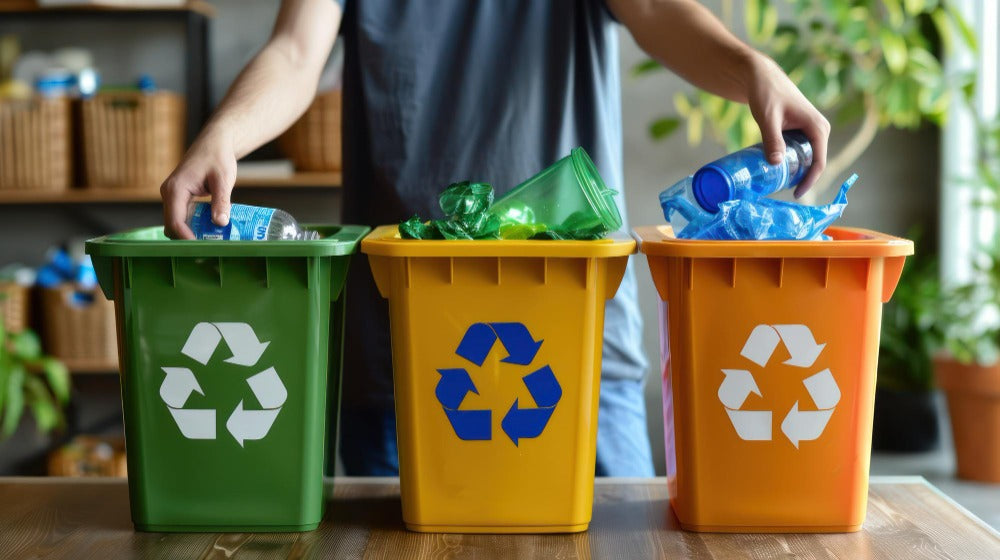
Africa Waste Management Market Poised for Growth
Share

According to a new research report by Next Move Strategy Consulting, the Africa Waste Management Market, is projected to reach USD 23 billion with a Compound Annual Growth Rate (CAGR) of 6% during the forecast period by 2030. This growth is being driven by heightened awareness of resource conservation, an increasing demand for sustainable waste management practices, and a strong cultural emphasis on environmental responsibility across the continent.
A Growing Demand for Sustainable Waste Management Solutions
The Africa waste management sector is experiencing significant growth as the region becomes more aware of the importance of environmental sustainability. Rapid urbanization, industrialization, and population growth are contributing to an escalating waste generation crisis in many parts of Africa. In response, there is a growing demand for effective waste management solutions that focus on recycling, reuse, and resource recovery. This shift in mindset is being fueled by a cultural emphasis on environmental responsibility, with individuals, businesses, and governments alike seeking innovative and sustainable waste management solutions.
This increased awareness has created a market opportunity for companies offering eco-friendly solutions, including advanced recycling technologies, waste-to-energy systems, and sustainable disposal practices. As African nations align their waste management practices with global environmental standards, the demand for sustainable waste management services and technologies is expected to rise significantly.
Corporate Social Responsibility (CSR) Driving Market Expansion
A strong commitment to Corporate Social Responsibility (CSR) is also playing a key role in the growth of the African waste management sector. Recognizing the environmental challenges and limited resources, businesses, particularly those from Japan and other developed economies, are prioritizing responsible waste management practices within their CSR initiatives. These efforts include actively participating in recycling programs, investing in waste reduction technologies, and collaborating with governments to improve waste management policies and infrastructure.
Japanese companies, in particular, are leading by example in their approach to CSR. By embracing sustainable waste practices such as recycling, waste reduction, and resource recovery, they not only contribute to the environmental well-being of African nations but also enhance their global reputation as responsible corporate citizens. As companies in Africa increasingly adopt these practices, they further drive the growth of the waste management market, aligning with cultural values of environmental stewardship and sustainability.
Financial Challenges to Growth
Despite the strong growth potential in the Africa waste management market, the industry faces significant financial challenges. One of the primary barriers to growth is the high cost of building and maintaining waste management infrastructure. This includes the construction of facilities for waste collection, sorting, recycling, treatment, and disposal, which require substantial investments. The lack of adequate financing, particularly in rural areas, exacerbates the difficulty of scaling up waste management solutions to meet the growing demand.
Start with a FREE Sample – Download Now!
Additionally, many African nations are still in the early stages of developing efficient waste management systems, which means that much of the existing infrastructure is outdated or insufficient to handle the increasing volume of waste. Governments and private sector stakeholders will need to collaborate and invest in sustainable, cost-effective solutions to overcome these financial barriers.
The Path Forward: Collaboration and Innovation
To overcome the challenges associated with waste management, it will be essential for governments, businesses, and local communities to work together in developing innovative solutions that are both environmentally sustainable and financially viable. Public-private partnerships (PPPs) could play a key role in securing funding for waste management infrastructure projects, while international aid and green financing initiatives could further support the development of advanced technologies and waste management systems.
Investments in technologies such as waste-to-energy (WTE) systems and advanced recycling plants offer promising solutions for both waste disposal and energy generation. These technologies not only help to address the growing waste problem but also contribute to the region’s efforts to reduce reliance on fossil fuels and develop cleaner energy sources. As the cost of such technologies continues to decrease and their efficiency improves, they will likely become an increasingly attractive option for African nations looking to enhance their waste management capabilities.
Conclusion: A Bright Future for the Africa Waste Management Market
The Africa Waste Management Market is set for continued growth, driven by a combination of heightened awareness around environmental responsibility, growing CSR initiatives, and a strong demand for sustainable waste management practices. As the region works to address its waste management challenges, it will create new opportunities for businesses offering eco-friendly solutions, driving both market growth and environmental conservation.
While financial barriers remain a challenge, the rise of innovative technologies and collaborative efforts between governments and the private sector will help pave the way for a more sustainable and profitable waste management industry. As Africa continues to invest in sustainable waste management solutions, the region is poised to emerge as a leader in responsible waste practices, benefiting from both environmental and economic advantages.